What do city councilors think about the plan to build a $152 million middle school on raw land in East Concord?
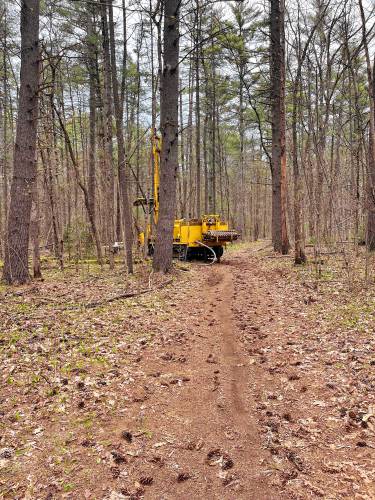
The boring machine that took soil samples on the middle school site in the woods near Broken Ground School. COURTESY
|
Published: 08-09-2024 2:59 PM
Modified: 08-10-2024 11:37 AM |
City Councilor Michele Horne doesn’t live near either the current or proposed middle schools, or even in the Concord School District, and she’s never had to make a vote on the middle school project. Nevertheless, it’s the one thing her constituents ask her about more than anything else.
“Most of the calls I get now are about the middle school,” she said.
She’s not alone.
Residents have pressed their councilors to take a stand. They want to know: Do their elected representatives agree with the decision to move the middle school across the Merrimack River? And, will the city — and its citywide tax base — chip in for the infrastructure improvements needed to support the new building?
Yet, councilors have avoided speaking about the project publicly and Mayor Byron Champlin refused to make it a point of discussion for the full body.
With the school board moving forward with designs, the citizens’ group opposing the Broken Ground location has tried to put the question of who should decide where Concord schools go on the November ballot. Residents, both aligned with the citizens group and not, have asked what their councilors think, and whether the city can or will have any sway.
When asked by the Monitor, all but two councilors argued that the project was out of their control. That’s technically true since the school district has autonomy from the City Council. At the same time, the school district will rely on cooperation from the city to make the project work on the East Side and the council has influence over all development in the city through its Master Plan. Also, the city has a voice as an abutter to the Broken Ground land where the school is slated to be built.
As individuals, the 10 councilors interviewed for this story were roughly split between preferring a rebuild at Rundlett and declining to say what they thought. Despite their personal views, all but two said the council had no role in the project unless it came on their agenda as a specific funding request from the school district.
Article continues after...
Yesterday's Most Read Articles
 ‘I thought we had some more time’ – Coping with the murder-suicide of a young Pembroke mother and son
‘I thought we had some more time’ – Coping with the murder-suicide of a young Pembroke mother and son
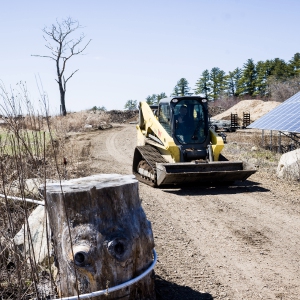 Owners of Lewis Farm prepare to bring back agritourism after long dispute with city of Concord
Owners of Lewis Farm prepare to bring back agritourism after long dispute with city of Concord
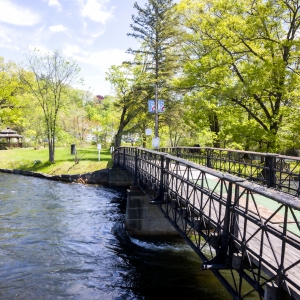 Historic Tilton Island Park Bridge will be reopened unless Trump takes back a federal grant
Historic Tilton Island Park Bridge will be reopened unless Trump takes back a federal grant
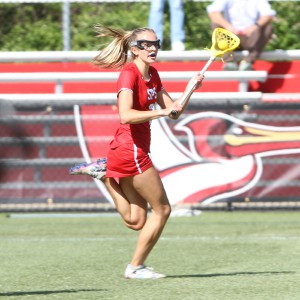 Five former Concord Crush girls at St. Paul’s are soon to leave the nest to play NCAA Women’s Lacrosse
Five former Concord Crush girls at St. Paul’s are soon to leave the nest to play NCAA Women’s Lacrosse
 As Canadian travel to the U.S. falls, North Country businesses are eyeing this Victoria Day weekend to predict impacts in New Hampshire
As Canadian travel to the U.S. falls, North Country businesses are eyeing this Victoria Day weekend to predict impacts in New Hampshire
 ‘Folks who use it should pay for it’ — City manager proposes clubhouse plan with smaller tax impact
‘Folks who use it should pay for it’ — City manager proposes clubhouse plan with smaller tax impact
Two councilors — Stacey Brown of Ward Five and Jeff Foote from Ward 10 —not only disagree with the relocation of the middle school, but they feel that it is their obligation as councilors to be involved.
Brown is actively involved with the citizens group trying to keep the school in the South End. While other councilors often oppose her proposals and initiatives, on this issue she is not the only voice.
“Any $150 million project in Concord, the City Council should be talking about it,” Foote said.
Foote isn’t as involved with the citizens group, but many of them, living near South Curtisville Road, are his constituents.
“I share the concerns of residents in Ward 10,” including the added costs posed by infrastructure improvements to accommodate the new school, Foote said. Both he and his children attended Concord schools, including Rundlett. Of the South Street location, he said, “I think where it is has worked well for over half a century.”
Brown sees the Broken Ground location as incompatible with the master plans, goals and priorities of the city that the council sets and oversees. She specifically pointed to planning and emissions goals that encourage building close to existing, walkable population centers and repurposing existing developed areas over new construction.
“The Broken Ground location goes against a lot of our goals as a city,” Brown said.
Not everyone agreed with Brown’s or Foote’s views of the council’s role in the project, but the majority said they either did not want the new school to move to the Broken Ground location or didn’t understand why the school board had favored it.
“As a citizen, I would prefer to see it stay where it is,” Horne said. But, as a councilor advocating for her constituents, she felt that the board needed to do more to explain why it chose Broken Ground. “I have looked back through the 175 documents on the middle school project website — which is great that that information is there. But even looking through that, I can’t figure out why they’re so fervent about moving up there and dedicated to that spot.”
Kris Schultz, representing Ward Nine, said she favored keeping the Middle School in the south end because the site is already developed. But because of the board’s autonomy, she endorsed the mayor’s decision not to put it on the council agenda.
“This is a very heated topic in our community, and I’m not shy about wanting to have big conversations about something like that,” she said. “But we have to be really, really clear about who has the power here.”
Amanda Grady Sexton, a longtime at-large councilor, agreed.
“No one should be misleading constituents into thinking that the council can do anything other than throw wrenches into this process — and that’s not in the best interest of anyone,” Grady Sexton said. “The way that the charter is written, all I can really do is advocate for people, or help them to advocate for themselves.”
At the same time, she didn’t hedge on her own view.
“I think that it’s pretty clear that it’s not a vocal minority of residents that don’t want the middle school to be moved to East Concord,” she said — including her. Asked if the school board should revisit the decision, she responded, “Absolutely.”
Citing the school board’s autonomy, Champlin and several councilors refused to say whether they agreed with the school board’s decision to relocate the middle school — or to share any thoughts on the project. They asserted it would be inappropriate for them to give any opinion even as taxpayers and constituents of the school board.
The council won’t discuss it as a group either. Champlin rejected a request from a resident last month to put a hearing about the school board on the agenda of its Monday meeting. And while the school board has said they’ll give a presentation to the council sometime this fall, he said he won’t allow public comment on the issue at that time, either.
“I don’t know that our responsibility is to provide people with a public forum in which they can express their opinions,” he said of his decision.
It’s the same approach that he took in July when a resident asked the councilors about their opinion on the middle school project. Champlin said the council only took public comment on items specifically on the agenda and dismissed the question as irrelevant to the business at hand that evening.
When pressed by the Monitor for his position on the location of the school, its impact on the future of the city, or its cost to taxpayers, Champlin gave guarded responses.
“My opinion,” Champlin said of the project, “is that I hope that the school board has been as responsible as possible.”
Ward three Councilor Jennifer Kretovic and At-Large Councilor Nathan Fennessy similarly withheld their opinions.
“Is it our place to overstep our bounds and weigh in on their project? I think the answer is ‘no.’ It’s their project,” Kretovic said.
“I do not have an opinion,” Fennessy said. “I won’t second guess any decision they’ve made.”
Two councilors, Brent Todd of Ward One and At-Large Councilor Judith Kurtz said they were still forming their opinion and waiting for more information about the project.
Kurtz testified in favor of the South Street site when the board made the vote last fall.
She didn’t indicate that her position had changed, but she said she hears from constituents — even those who shared her position last fall — who worry going back on the location decision will, in the end, hurt students and teachers, by delaying the project and adding to the cost.
“I’ve definitely heard the sentiment that ‘we desperately need a new middle school, let’s not slow down the process,’” Kurtz said. “That’s a pretty constant refrain.”
She’s not sure, she said, what the best path forward is now — but she, and others, anxiously await the school district’s presentation this fall.
There was one aspect of the project where councilors were in broad agreement.
It’s unclear how much, but enhancements to roads and sidewalks not already in the city’s pipeline will have to happen on the East Side to accompany a new school. If the school district asked the city to share the costs of new infrastructure work to support a new school, city councilors said they’d say no.
That’s especially true for Horne, one of few councilors representing people in both the Merrimack Valley and Concord districts. If the city chips in on infrastructure needed to build at Broken Ground, it will go into the citywide tax rate, and Penacook residents would be helping to pay for a school their children won’t attend.
Her biggest concern, she said, was that costs would be passed on to Penacook residents who don’t have any input on this project and can’t vote on Concord School Board members.
Also, City Council has its own ambitious — and expensive — slate of major construction projects on the table in the next few years. Councilors weren’t keen to add to their own budget and said they felt the school district’s bill should reflect the full cost of its project.
Ward Four Councilor Karen McNamara, Ward Six Councilor Paula McLaughlin, Ward Eight Councilor Ali Sekou and At-Large Councilor Fred Keach did not return interview requests for this story. Ward Seven Councilor Jim Schlosser said he was unavailable.
Catherine McLaughlin can be reached at cmclaughlin@cmonitor.com







 ‘I hate to leave’: Three-alarm fire in Loudon burns centuries-old home to the ground
‘I hate to leave’: Three-alarm fire in Loudon burns centuries-old home to the ground Photos: Signs of spring
Photos: Signs of spring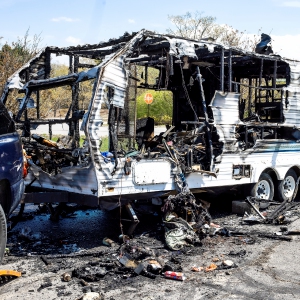 25-year-old Concord man identified as Steeplegate Mall RV fire victim
25-year-old Concord man identified as Steeplegate Mall RV fire victim
